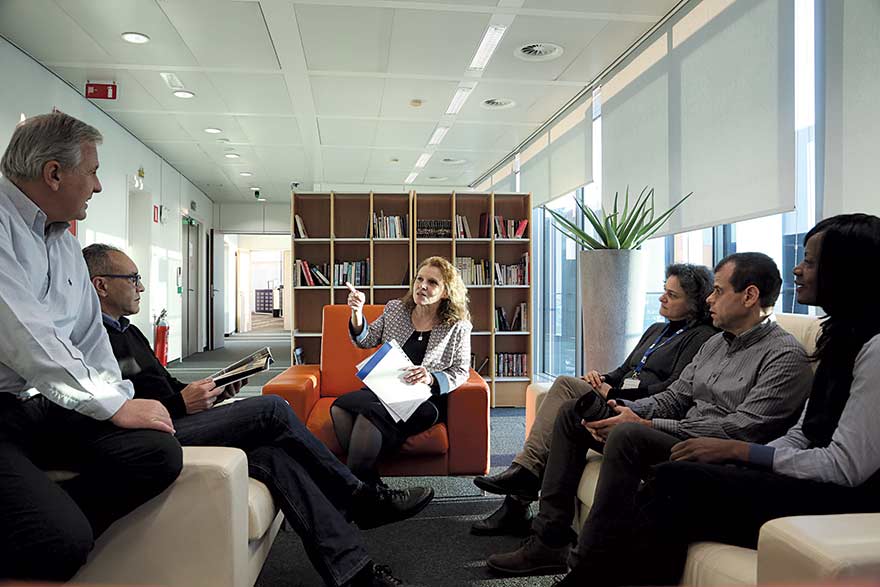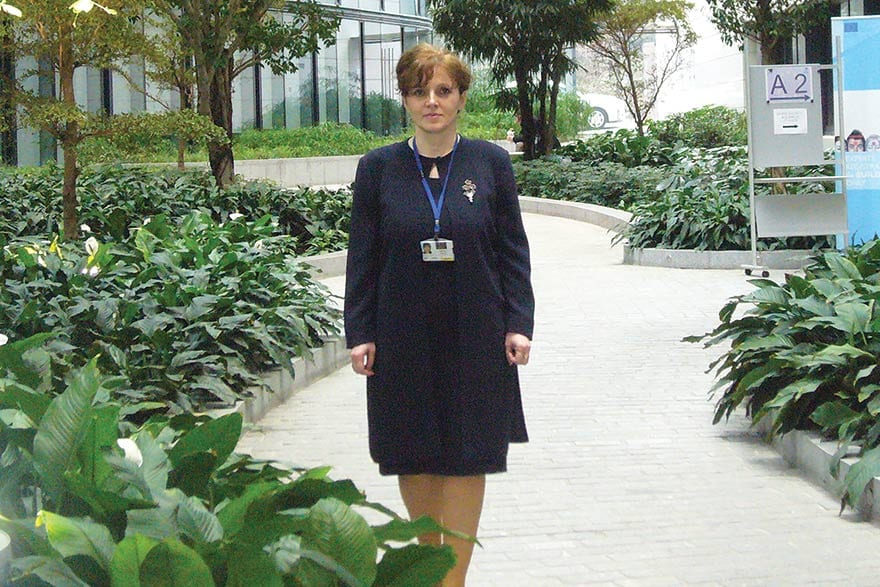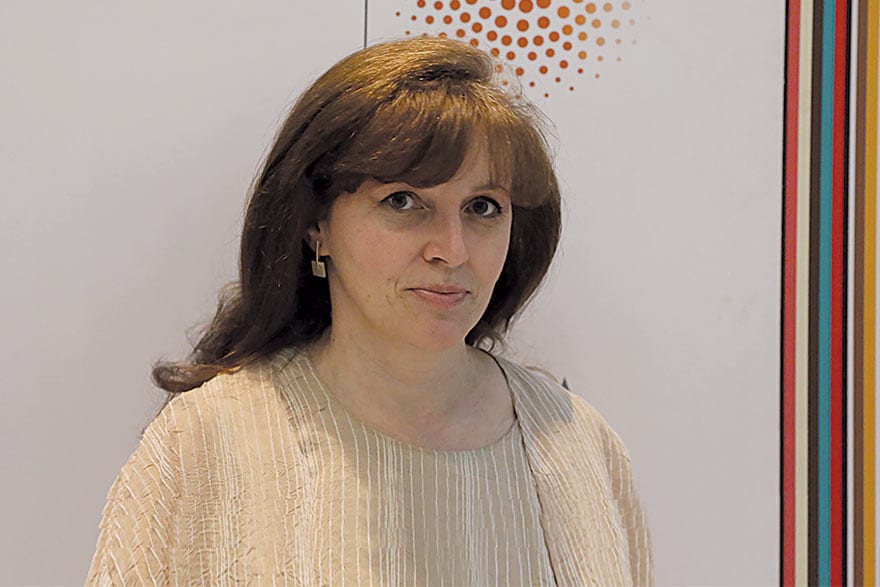After many years working at the Technical University of Vienna as a lecturer and researcher, our interviewee started working at the European Commission in Brussels in 2002. Gordana is both Serbian and Austrian and since 2010 has worked on the implementation of the grant schemes of the European Research Council (ERC), which forms part of the EU Research and Innovation Framework Programme – Horizon 2020. We had numerous questions for her, but first, she told us about the ERC itself.
“The ERC provides funding for curiosity-driven research at the frontiers of knowledge. Since its establishment, the ERC has funded over 9,000 researchers and over 60,000 members of their teams, mostly PhD and post-doctorate students,” explains Dr Popovic.
Independent studies have shown that over 70 per cent of completed projects led to discoveries or major advances. The ERC launched the ERC Proof-of-Concept (PoC) Grants in 2011, which are available to help ERC grant holders commercialise the results of their ERC research, supporting the earliest stages of a marketable innovation.
“This additional funding aims to maximise the value of the excellent research that the ERC is funding, for example by assisting in establishing viability, supporting market research, clarifying the strategy of Intellectual Property Rights, investigating business opportunities or covering some initial expenses for a start-up,” explains our interlocutor.
The ERC represents a specific part of the Horizon 2020 programme, which opens the door to initiatives coming from a base of scientists themselves. What kind of feeling do you have when faced with ideas that come from a scientific base, from your colleagues?
 The ERC is indeed truly unique. It was set up for and by scientists and is boosting scientific excellence in Europe by funding the research of talented people from all over the world, following a competitive selection process. The model is simple – there is one evaluation criterion: scientific excellence of the project and the researcher. The university or research institution where the researcher proposes that research be conducted and its location are not evaluated.
The ERC is indeed truly unique. It was set up for and by scientists and is boosting scientific excellence in Europe by funding the research of talented people from all over the world, following a competitive selection process. The model is simple – there is one evaluation criterion: scientific excellence of the project and the researcher. The university or research institution where the researcher proposes that research be conducted and its location are not evaluated.
Our grant schemes are open to top researchers of any nationality, age or gender, from anywhere in the world. It is a ‘bottom-up’ programme: there are no policy-driven or predetermined thematic priorities. Everything depends on the individual researcher, their best ideas, curiosity, ambition, creativity, quality in all fields – Life Sciences, Physical Sciences and Engineering, as well as Social Sciences and Humanities.
It is extremely inspiring to have insight into really impressive projects that represent breakthroughs in science. It is like plunging into the future
Working on the implementation of the ERC programme is extremely exciting and rewarding. I worked as a scientist and university lecturer for many years before coming to Brussels, so I can also view the programme from the perspective of what researchers need. I can say that it’s great to work on this programme. Here I have the opportunity to have direct contact and interaction with some of the greatest names in research.
I coordinate the ERC panel for Products and Processes Engineering, which covers engineering in the areas of aerospace, materials, chemicals, civil and mechanical engineering, biomedicine, energy, computing, production etc. It is a lot of work with many long days, but it is highly inspiring to have insight into really impressive projects that represent breakthroughs in science, to monitor them and see their impact.
To what extent do Serbian scientists utilise the opportunities you provide?
It can be seen from the statistical data that Serbia has become much more active in Horizon 2020 than it was in the previous Framework Programme for Research and Innovation (FP7). To date – halfway through Horizon 2020 – Serbia has already reached similar or higher figures (in terms of participation and funding received) to those it had achieved at the end of FP7. Numerous Horizon 2020 awareness and training activities across Serbia and the region have been conducted by colleagues from different Horizon 2020 programmes, and some good results have been achieved. Serbia has also joined some European and world-leading research infrastructures, providing its scientists with access to state-of-the-art scientific tools and expertise.
I know that there are many researchers in Serbia and that our science has huge potential. I hope more Serbian researchers apply for funding and that we will see more Serbians with ERC grants in the future
As for the ERC, researchers based in Serbia have submitted 93 proposals, two of which have received grants. Dr Sofija Stefanović gained her €1.7 million ERC Starting Grant in 2014, in the domain of Social Sciences and Humanities, more precisely doing research on the prehistory of humans in the Balkans. Dr Magdalena Đorđević received an ERC Consolidator Grant of €1.3 million in 2016, in the area of fundamental physics. Another eleven Serbian nationals have also received ERC grants to pursue their projects outside Serbia.
Four of those grant recipients are based in the UK, three are in France, two are in Switzerland and the others are in Germany and Spain.
You’ve exerted a lot of effort to promote the opportunities provided by your ERC programme to the scientific community in Serbia. How often does someone from Serbia knock on your door in Brussels today?
Not so often. But the information about the ERC programme and how to prepare and submit a proposal can also be obtained via National Contact Points. They provide information free of charge to ERC applicants in their native language. Serbia has two: one is at the Ministry of Education, SciScience and Technological Development in Belgrade, and the other at the University of Novi Sad. Their contact details are on the ERC website.
Alongside the high technologies that are also your speciality and that we rate equally alongside innovations, the ERC also funds projects in the fields of social sciences and humanities. Can you describe some of the most notable projects in those domains?
This is another unique feature of the ERC: it’s probably the biggest Social Science and Humanities (SH) funding programme of excellence in the world. Some figures are worth noting in this regard. More than 431 million euros were awarded in 2017 via the Social Sciences and Humanities (SH) panels of the ERC. This constituted 23 per cent of total ERC grants that year.
 SH research funded by ERC covers so many fields that one can find exciting research projects on topics ranging from adolescent behaviour to energy poverty, migration patterns, the influence of algorithms on elections, economics and many more areas. The ‘Birth’ project in Serbia, led by Professor Sofia Stefanović, provides insight into prehistoric fertility in the Balkans between 10,000 and 5,000 BC. There are several examples of research projects funded by ERC that were highlighted, for example, on the occasion of the European Year of Cultural Heritage. Those include ‘Regoticvaultdesign’, on how the great structures of the past were designed and built; ‘Trans-Sahara’, which discovered a type of tomb with painted funeral chapels that was used for ancestor worship in the region; ‘Fragus’, which revealed that humans arrived in Malta at least 700 years earlier than previously thought. Another interesting example related to arts is the ERC project in the Physics and Engineering domain called Flowmachines, which looked at how the composition of music can be assisted by artificial intelligence. It produced the first ever music album entirely created with artificial intelligence.
SH research funded by ERC covers so many fields that one can find exciting research projects on topics ranging from adolescent behaviour to energy poverty, migration patterns, the influence of algorithms on elections, economics and many more areas. The ‘Birth’ project in Serbia, led by Professor Sofia Stefanović, provides insight into prehistoric fertility in the Balkans between 10,000 and 5,000 BC. There are several examples of research projects funded by ERC that were highlighted, for example, on the occasion of the European Year of Cultural Heritage. Those include ‘Regoticvaultdesign’, on how the great structures of the past were designed and built; ‘Trans-Sahara’, which discovered a type of tomb with painted funeral chapels that was used for ancestor worship in the region; ‘Fragus’, which revealed that humans arrived in Malta at least 700 years earlier than previously thought. Another interesting example related to arts is the ERC project in the Physics and Engineering domain called Flowmachines, which looked at how the composition of music can be assisted by artificial intelligence. It produced the first ever music album entirely created with artificial intelligence.
…And, yes, there are also ERC Proof of Concept projects in SH. An interesting example is the project COMCIT, which aims to promote the use of imagery in teaching social sciences and humanities, in order to improve the understanding of societal issues around citizenship in the states that formerly comprised Yugoslavia. Another example is in arts. The project CIPRID develops an interactive online exhibition and an arts consultancy service to stimulate new creative and educational uses of the project’s results, in collaboration with indigenous artists, intellectuals and communities.
Six ERC grant recipients have subsequently received Nobel Prizes and another three Fields Medals, while dozens more were awarded with other important prizes
Gauged on the basis of the participation of Serbian scientists in European scientific programmes, what kind of image do we project regarding our potential to develop a knowledge-based economy?
From what I can observe, Serbia is projecting an active and engaging attitude towards Horizon 2020. If I take the statistics, Serbian scientists participate to a moderate level in all parts of Horizon 2020. However, their success rate in many areas is slightly below average, though in recent years it has gradually increased and is now in line with that of other enlargement countries. Most notably, Serbia has been very successful in the fields of ICT and Energy. I know there are many excellent researchers in the country who can boost the knowledge-based economy, so there is huge potential in Serbian science.
You often state that it would be good if scientists were present in the Serbian media more than reality show stars. Towards which names would you direct our attention?
I could see that, if a researcher gets an ERC grant, they are featured in the mainstream media in many countries. Across Europe, there are many actions that place attention on scientists, their work and results. Although I see some positive approaches and efforts by Serbian media outlets to promote science, I consider it very important for research and researchers to become more visible. I see that many scientists, trying to achieve important results with sometimes limited infrastructure, have to be creative, practically finding solutions for their experiments like ‘magicians’, day and night in their labs. It would be important to know about them and their work. In parallel, due to the enormous brain-drain that Serbia has suffered, many researchers are now based abroad, but it is very important for the country and its economy to know who they are and what great research they do. I have the pleasure and honour of knowing many great Serbian researchers in Serbia and beyond the country. Listing their names would cover all the space envisaged for this interview!
When flying to or from Belgrade with Air Serbia, I sometimes fly on aircraft that carry the names of famous Serbian sportsmen or actors, following the initiative ‘Living Legends’. I am looking forward to soon flying on an aircraft that carries the name of some of our great researchers. Why not?!
